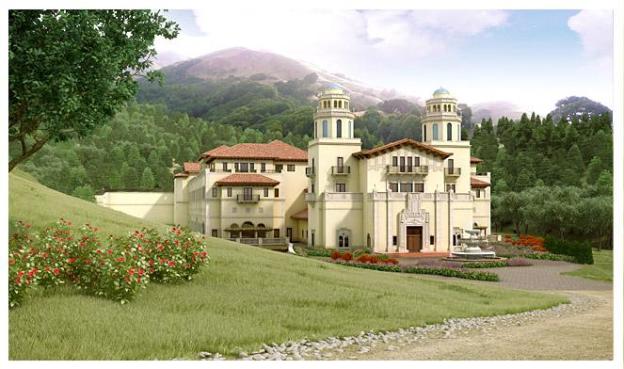 Lucasfilm Ltd., the production company founded by director George Lucas and the force behind the Star Wars franchise, pulled its bid yesterday on the Grady Ranch property located in Lucas Valley, north of San Francisco. In an angrily worded statement, Lucasfilm cited ongoing delays and frustration with the attitude of local homeowners as its reasons for pulling out.
Lucasfilm Ltd., the production company founded by director George Lucas and the force behind the Star Wars franchise, pulled its bid yesterday on the Grady Ranch property located in Lucas Valley, north of San Francisco. In an angrily worded statement, Lucasfilm cited ongoing delays and frustration with the attitude of local homeowners as its reasons for pulling out.
“We love working and living in Marin, but the residents of Lucas Valley have fought this project for 25 years, and enough is enough,” said the company. “The level of bitterness and anger expressed by the homeowners in Lucas Valley has convinced us that, even if we were to spend more time and acquire the necessary approvals, we would not be able to maintain a constructive relationship with our neighbors.”
The company seems to be getting the last laugh, however. The statement concludes with the pointed suggestion that the company will sell the property in Lucas Valley – where the median annual income is over $100,000 – with plans for it to be developed as low-income housing.
We plan to sell the Grady property expecting that the land will revert back to its original use for residential housing. We hope we will be able to find a developer who will be interested in low income housing since it is scarce in Marin. If everyone feels that housing is less impactful on the land, then we are hoping that people who need it the most will benefit.”
Lucasfilm Ltd., which originally began acquiring land in Lucas Valley (named for a 19th century farmer with no relation to the filmmaker) in 1978 with its development of Skywalker Ranch, a 4,700-acre location that houses animals, vineyards, gardens, athletic facilities and multiple theater screening rooms.
Unlike Skywalker Ranch, which has been described as a filmmaker’s retreat rather than a center of business, the Grady Ranch facility would have been primarily focused on production. The plan called for a 269,000-square-foot digital media studio, two indoor sound stages and a 7,000-foot outdoor sound stage, as well as screening rooms, guest housing, an employee cafeteria, and auxiliary facilities such as guest housing and a wine cave.

“It’s disappointing,” said Ed Segal, CEO of the Marin Association of Realtors. “We should be doing all we can to keep, grow and attract jobs.”
However, the project also had it its detractors, including the Marin Conservation League, which worried that the introduction of such a large facility would increase traffic, noise and result in environmental damage to the area. “The Phase II development would have allowed office and industrial uses in an area zoned for housing and agriculture,” said the MCL on its site. “The MCL’s concerns focused on the massive reshaping of the landscape and Miller Creek… the Grady Ranch facility would have rebuilt the landscape to fit the structures [of the project].”
The Marin County planning commission approved the project in February, but the decision was appealed last week by the Lucas Valley Estates Homeowners Association, which represents the owners of 174 homes near the 52-acre project site. Liz Dale, president of the organization, expressed relief. “We are glad we don’t have to worry about the potential impacts we were worried about,” said Dale. “We don’t want to describe it as good news or bad news, but I can understand why another location would be better for this type of facility.”
In apparent response to these concerns, the Lucasfilm statement refers to the project’s proposed restoration and preservation measures, citing similar endeavors around Skywalker Ranch, including the preservation of 5,000 acres, the planting of 8,000 trees on the property, and the company’s provision of fire and rescue aid to the surrounding community.
“We realize our solution to creating open space by placing low-impact commercial facilities on farmland, while permanently preserving over 95 percent of the total acreage, has not been accepted by our neighbors. Nor are they or many of the public agencies interested in the $50 to $70 million restoration of the stream. Maybe we’re ahead of our time.”
Lucasfilm spokeswoman Lynne Hale has stated that two cities have contacted the company about building the new studio in their municipalities and said that Lucasfilm is already in talks with developers about selling Grady Ranch.


